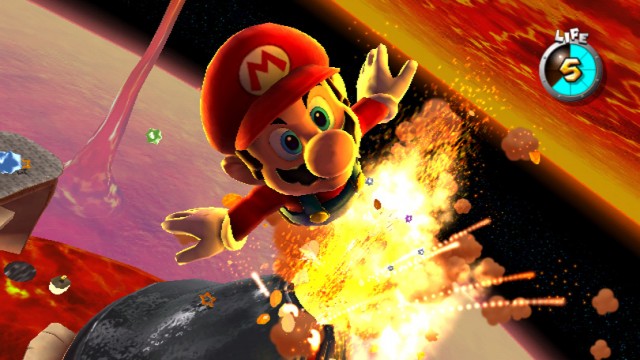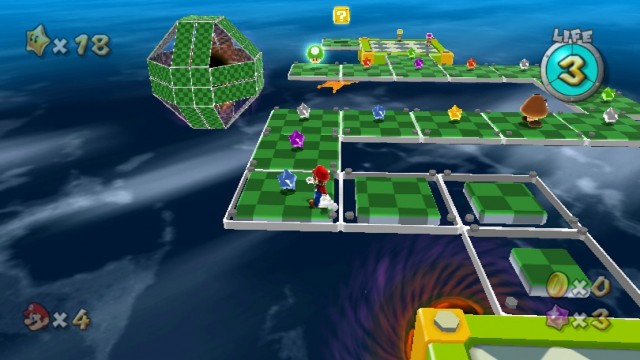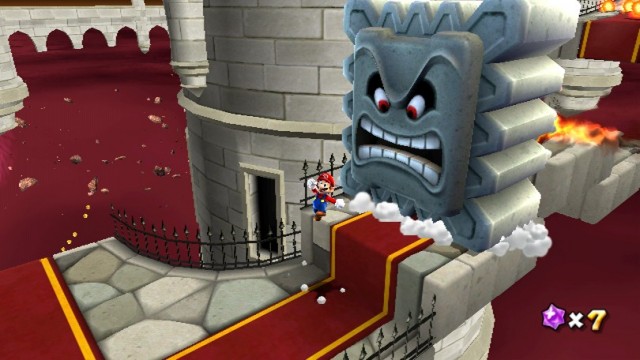 On November 19, 2006, the Nintendo Wii was released, simultaneously disrupting the traditional evolutionary flow of the industry and launching a new era of gaming defined by more players and less controls. While many, from pundits to gamers, are still debating the merits of such a development, and while the system hasn’t provided the breadth and depth of hardcore gaming experiences that were made available on every previous Nintendo console, there are still a number of magical, must-play titles that have dotted the machine’s library like jewels in a crown.
On November 19, 2006, the Nintendo Wii was released, simultaneously disrupting the traditional evolutionary flow of the industry and launching a new era of gaming defined by more players and less controls. While many, from pundits to gamers, are still debating the merits of such a development, and while the system hasn’t provided the breadth and depth of hardcore gaming experiences that were made available on every previous Nintendo console, there are still a number of magical, must-play titles that have dotted the machine’s library like jewels in a crown.
To commemorate the Wii’s fifth birthday– its last before Nintendo ushers in its sixth(!) system– Nintendojo looks back on the best of these best releases. Five authors, five games, and five years, all in five days.
Let’s a-go!
Game: Super Mario Galaxy
Release date: November 12, 2007
I’ve always been especially fond of the Mario series– my earliest gaming memories are of exploring the 8-bit landscapes of the first Super Mario Bros. title, and since then, I have eagerly played (and re-played) every installment to grace a home console, following the plumber as he matured from a tiny handful of pixels to a larger-than-life industry icon. It is no stretch to say the series is my favorite of Nintendo’s many properties, not least because it is inextricably tied to my childhood. And when its first Wii iteration, Super Mario Galaxy, was announced at E3 2006, the title instantly became my most anticipated for the console.
At the time of Galaxy’s release, the series was at something of a crossroads. Super Mario 64, while undeniably revolutionary, was also immensely different from any Mario game before it, placing a greater emphasis on open-world exploration than on expert platforming. Its GameCube follow-up, Super Mario Sunshine, stuck largely to this formula, and while it was certainly fun in its own right, many (including myself) could not help but feel a little disappointed with the final product. There was something curiously paradoxical about the title– it had amplified everything that made SM64 such an enjoyable experience, but somewhere along the way, it had lost sight of what it truly meant to be a Mario game. Fun as it may have been, the title simply did not feel like a sequel to Mario 64, and it looked as if the series, once at the forefront of innovation, had begun to stagnate.
Galaxy, for all of its grandiosity, marked a decided return to the simplicity of earlier Mario titles. Gone were the sprawling locales of SM64 and SMS, and in their stead were a collection of linear challenges more akin to obstacle courses (albeit ones set against the backdrop of swirling nebulae and dense star clusters). On paper, this radical shift in design seemed like a regression from the open-world approach of its predecessors, but in practice, it proved to be a logical new direction for the series; the straightforward levels of SMG were immediately reminiscent of the plumber’s side-scrolling adventures, making it (at least, up to then) the truest expression of Mario gameplay in three-dimensions.

In fact, despite its excesses, the entire game felt almost like an exercise in reductive design. While structured similarly to Mario 64 and Sunshine, Galaxy distilled each of their defining components down to its essence: stages were condensed to three primary challenges (down from SM64‘s six); large landmasses were eschewed for small planetoids and abstract platforms; even its hub area was notably simplified, forgoing the complex layout of its predecessors’ for a more streamlined (both structurally and aesthetically) arrangement. The game played out much more briskly as a result, introducing new stages in rapid-fire succession. Its successors, Galaxy 2 and Super Mario 3D Land, would expand upon this approach even further in their own unique ways (the former by refining SMG‘s pacing; the latter by striking a happy medium between the series’ two disparate game styles), but it was Galaxy‘s daringness that ultimately had the biggest influence on Mario’s future.
All of this was made possible courtesy of its setting. Rather than being constrained by its cosmic theme (as Sunshine was by its tropical one), SMG was liberated by it, throwing any obligation to “realism” (at least insofar as the Mario series has ever adhered to that standard) out the window in favor of a looser approach to level design. Stages were appropriately vast, but each seemed almost haphazard in its composition, taking you through an arbitrary set of challenges before reaching its conclusion. This made for a wildly unpredictable and thrilling experience as you could never expect what you’d see next; certain levels would propel you into radically different territory at a moment’s notice, and some even literally constructed themselves as you played them. The creativity on display was simply astounding, and the sheer breadth of challenges made it one of the most consistently exciting games on any console, past or present.
Perhaps most importantly, the new space setting also allowed for some truly unique gameplay opportunities. The Wii remote itself was utilized in a number of creative and organic ways thanks to the title’s varied stages, but it was the gravity effects that had the biggest influence on its design. Each landmass, provided it did not hang above a black hole, had its own gravitational field that tethered Mario to its surface, and the game made ample use of this in the way it structured its myriad challenges. Levels would often turn at inconceivable angles, changing orientation so frequently one would think they were designed by M. C. Escher (had he been reanimated and contracted by a Japanese game developer, of course). The mechanic was so expertly woven into the fabric of the game that it became an integral characteristic of the newborn sub-series, and it helped spur some of the most imaginative stages the medium has ever seen.

Still, while the gameplay innovations of Galaxy attracted the most attention, it was the presentation that solidified it as the definitive Wii title. It was clear Nintendo spared no expense in bringing the plumber’s first space adventure to life, even going so far as to assemble an orchestra for its score. This last decision seemed particularly odd, as many had assumed the Zelda series, what with its tales of high fantasy and epic battles, would be the first of the company’s properties to boast an orchestrated soundtrack. On further reflection, however, it made perfect sense– Mario had always been treated as a vehicle for experimentation, and it was only appropriate that he would be the one to usher in a new musical direction for the company. What resulted was one of the finest scores to ever accompany a videogame, a melding of spacey ambiance, old-school melodies, and classical bombast that added a palpable sense of grandeur to the title’s set pieces.
There are countless other innovations I would be remiss to overlook, but in the end, Super Mario Galaxy’s biggest legacy will be that it signaled the beginning of a veritable renaissance for the Mario series. The title single-handedly revitalized a tired gaming icon, one whose relevance was thought to be long behind him, by bringing him back to his roots without abandoning any of the advances he’s made. The sheer creativity of its levels, the scope of its backdrops, and the majesty of its soundtrack made it, in my eyes, the most magical experience on its console, and it is one of the few videogames I would truly consider to be a work of art. The Nintendo 64 may forever be associated with its Zelda titles, and the GameCube with its Metroids, but Wii will always be remembered for producing two fantastic Mario games and giving the old plumber a new lease on life.




 ShareThis
ShareThis






